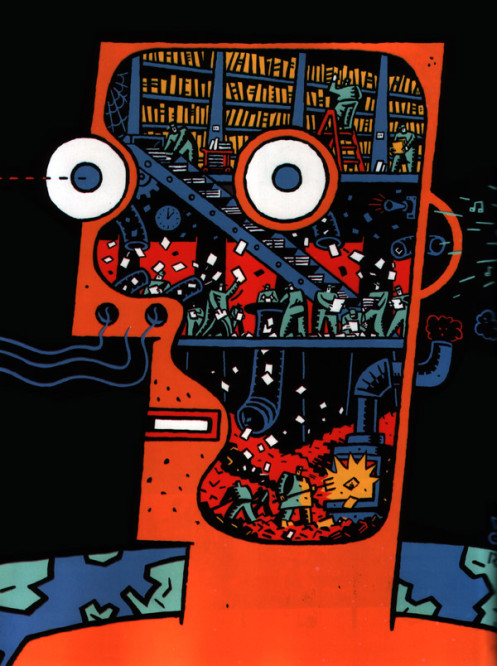CONFESSIONS OF A SLEEPREADER
The time I set aside for pleasure reading has become, in a word, unpleasant. Like you, I have obligations that irritate the ulcers. Bills to pay, a job to attend, a body to take care of, domestic insects to kill or exterminate. The other day I had to rest a glass of apple vinegar atop my bedroom dresser to trap gnats (they love the stuff—who knew?). My girlfriend was “seriously convinced”it was a glass of pee.
Among the detritus of everyday life, like contributing to the genocide of bugs, it’s often nice to turn to the literary big hitters for a respite from the banal. We let Nicholson Baker make us feel dirty; allow Mark Twain to make us laugh; invite Poe to exercise our imaginations and neuroses. If only we didn’t stab them in the back.
While I do happen to harbor my fair share of neuroses, my particular irrational fixations fortunately do not pervade my End of the Day Time to Go To Bed times. I like sleeping and I like walking, but I’ve never sleepwalked. I’m no psychiatrist, but it seems to me a condition afflicting those whose adventures in waking life have taken a turn for the disenchanted. Having the fortune of sound sleep, it’s hard to relate to the woes of the sleepwalker, or, as a matter of fact, any rigors of debilitating nocturnal activity (sleep eating, sleep apnea, sleep talking, sleep onanism, the grinding of the jaw, or that kind of bodily sprawl that ends with a dull, but loud THUD as a loved one graces the floor). But I can speculate that the body does these things to reconcile anxieties. Among which lies boredom.
From my past as a musician with a practice-until-your-fingers-bleed type dedication, I know that an in and out, day after day routine can bludgeon one’s piece of mind. In the 1960’s Guy Debord, a French Situationalist, imagined a serum for this kind of anxiety. Debord conceptualized Dérive, an experimental behavior that encourages one to make new what has become plebian, everyday, boring. Normally, this is done by making urban landscapes exciting again by drifting (literally, walking) through the city, taking directional cues not through street signs, but through the contours of the town’s architecture. Just kind of feeling your way out through new, unexplored terrain to invigorate the drifter from routine. There is no destination; only, perhaps, in the mind: to find something out about yourself and your city. Debord encourages getting hammered beforehand.

